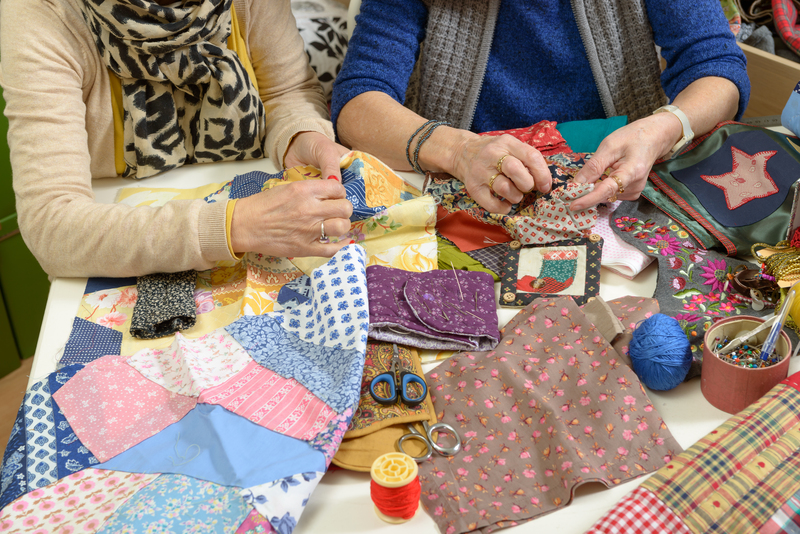Redefine Comfort with Decluttering and a Minimalist Approach
In today's fast-paced world, the quest for true comfort at home often leads us to re-evaluate our relationship with our belongings. As clutter accumulates, our spaces--and minds--can feel cramped and chaotic. The minimalist approach offers a transformative alternative, promising a purer sense of comfort by embracing less. In this comprehensive guide, we'll explore how decluttering and minimalism can help you redefine comfort within your own home.
Why Does Comfort Matter in Our Everyday Lives?
Comfort isn't merely about cushy chairs or soft blankets; it's about cultivating an environment that nourishes both body and mind. True comfort is achieved when our surroundings embody calm, order, and intentionality. Clutter disrupts this, sapping our energy and clouding our mental clarity. That's why so many people are turning to a minimalist lifestyle--to rediscover the peacefulness nestled inside simplicity.
The Link Between Decluttering and Comfort
- Reduced Stress: Visual and physical clutter stimulate stress hormones in the brain, making it harder to fully relax.
- Improved Focus: A tidy space helps reduce mental distractions, fostering clear thinking and creativity.
- Enhanced Emotional Wellbeing: Releasing unused possessions can be liberating, making room for positivity and serenity.

Understanding Minimalism: More than Just Clean Spaces
A minimalist approach isn't just about throwing things away. At its core, minimalism is about intentional living. By curating our possessions to include only what truly adds value, we create space--literally and figuratively--for what matters most. The ultimate reward is redefined comfort; a serenity anchored in purpose, not possessions.
What is a Minimalist Home?
A minimalist home features:
- Uncluttered surfaces and open areas that allow for ease of movement.
- A curated selection of meaningful items instead of overflowing shelves.
- Neutral color palettes and natural materials that invite calm.
- Multipurpose furniture that maximizes function while minimizing excess.
The result is a living space that feels more like a sanctuary--a place where comfort, clarity, and peace are ever-present.
Benefits of Decluttering and Minimalist Living
1. Emotional and Mental Clarity
Clutter weighs on the mind, even if it's out of sight. Studies show that organization and minimalism can:
- Decrease anxiety and depression
- Improve sleep quality
- Increase satisfaction and happiness at home
2. Physical Health & Well-being
A decluttered environment translates to cleaner, healthier living. Fewer items mean less dust and allergens, making your home a haven for well-being. Open spaces also motivate movement and healthier habits, allowing your body to experience true comfort.
3. Time, Energy & Money Savings
- Less time spent cleaning and organizing
- Fewer purchases mean more financial freedom
- Energy is spent on what truly matters, rather than constant maintenance
Living minimally lets you reclaim the precious comfort of time--the freedom to enjoy your days, not just manage your possessions.
Step-by-Step: How to Redefine Comfort with Decluttering and Minimalism
Step 1: Visualize Your Ideal Comfort Space
Begin by imagining what comfort looks and feels like to you. Is it a cozy reading nook surrounded by just your favorite books? An uncluttered kitchen with clear countertops ready for culinary creativity? Write down your ideas. This vision will serve as your compass throughout the process.
Step 2: Start Small and Focused
Don't try to overhaul your entire home overnight. Instead, choose one area--a drawer, closet, or table--and declutter it entirely. Remove everything and only replace items that you truly use or love. Small victories will keep you motivated as you move onto larger spaces.
Step 3: Sort, Donate, and Discard
- Sort: Divide items into categories--keep, donate, sell, or recycle.
- Donate or Sell: Pass along items that could benefit someone else, or sell valuable pieces online.
- Discard Responsibly: Recycle or dispose of anything broken or unusable.
Remember: every item you release is one step closer to a comforting, minimalist space.
Step 4: Reorganize with Intention
Once you've pared down, organize what remains so everything has its own place. Consider using baskets, shelves, or storage bins--but avoid hiding unnecessary clutter out of sight. Choose functional storage that supports your daily life without creating more accumulation.
Step 5: Embrace Minimalist Decor
Select decor pieces that spark joy and serve a purpose. Opt for neutral colors, natural materials, and open layouts. A fresh bouquet, a beloved painting, or an artisan vase can give a room visual interest and comfort without adding clutter.
Step 6: Set New Intentions for Purchases
- Ask yourself: Do I need this? Does it match my vision of comfort?
- Practice mindful shopping and avoid impulse buys.
- Implement a "one in, one out" rule to maintain minimalism long-term.
Minimalist Living Room: A Real World Example
Imagine a living room with only the essentials: a comfortable couch, a single coffee table, a floor lamp for reading, and a few well-chosen books. Light flows through uncluttered windows. There's no chaos of stacked magazines or messy cords. The comfort level is palpable; each item adds to the tranquility of the space.
Tips for a Comfortable Minimalist Living Room
- Choose fewer, higher-quality furniture pieces for both comfort and durability.
- Limit decorative items to a small handful with personal significance.
- Incorporate plants or natural elements to soften the lines and create vitality without excess.
Minimalist Bedroom: Elevate Rest and Relaxation
A minimalist bedroom creates a personal retreat from the day's busyness. Remove non-essentials, leaving just a bed, nightstands, and perhaps a calming piece of art. The absence of excess decor supports better sleep by eliminating distractions and fostering a sense of sanctuary.
Keys to a Restful Minimalist Bedroom
- Neutral bedding for a sense of peace and comfort.
- Hidden storage solutions to keep essential items accessible but out of sight.
- Soft, warm lighting to enhance relaxation.
Decluttering Your Digital Space for Enhanced Comfort
Digital clutter can impact your sense of comfort just as much as physical mess. Declutter your devices and online spaces by
- Deleting unnecessary files, emails, and applications
- Organizing important documents into manageable folders
- Unsubscribing from email lists that no longer serve you
Maintaining Minimalist Comfort Over Time
Redefining comfort through decluttering and minimalist living is not a one-time achievement. Maintaining these benefits requires ongoing vigilance and intention. Schedule regular "reset" sessions to assess your belongings, rearrange as needed, and renew your commitment to living comfortably with less.
Quick Tips for Sustaining a Minimalist, Comfortable Home
- Practice gratitude for the things you keep--this discourages needless accumulation.
- Engage the whole household in your minimalist journey for shared comfort and cohesion.
- Review your needs and values regularly--let them guide your decisions.
The Sustainable Side of Decluttering and Minimalism
Minimalism isn't just good for your comfort--it's good for the planet. When you consume less, you reduce waste and environmental impact. Donating and recycling items extends their life cycle, supporting a more sustainable world. In this way, redefining comfort through minimalism becomes an act of kindness, both to yourself and the Earth.

Frequently Asked Questions about Decluttering and Minimalist Comfort
Q: How do I start if I'm feeling overwhelmed by clutter?
Begin with one small area and set a timer for 15-30 minutes. Focus only on what you can achieve in that period. Overwhelm is normal, but action breeds motivation!
Q: Is minimalism expensive?
Quite the opposite. Minimalism encourages buying less and choosing quality over quantity, ultimately saving money and reducing unnecessary spending.
Q: Can comfort coexist with minimalism and decluttering if I have a family?
Absolutely! Minimalism doesn't mean living in a stark or empty home. It means ensuring every item in your space is used, loved, and enhances comfort for everyone.
Conclusion: Redefine Comfort with Less
In a world saturated with things, discovering comfort through a minimalist approach and thorough decluttering is both transformative and freeing. By focusing on what truly brings joy and utility into your daily life, you create a space that soothes the senses and uplifts the mind.
Let your home become a true reflection of ease and tranquility. As you release the unnecessary and embrace the essential, you'll not only redefine comfort, but also open new chapters of living simply, purposefully, and joyfully.